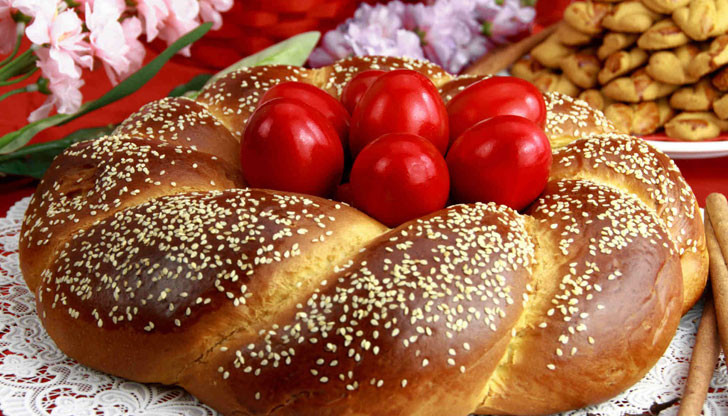Tradition says that Easter eggs must be painted on Maundy Thursday by the oldest woman in the family. Wealthier households would dye 500-600 eggs – for all members of the family, for relatives and guests, for paupers and for travelers. Dyes made of different plants were used to paint the eggs: the red – from oregano, the green – from nettles, the orange – from sumac, yellow – from walnut leaves or apple rinds.
The first egg is always painted red. Why?
“On the one hand eggs are the first animal food eaten after the long fast. The egg is seen as a Christian symbol of the tomb of Jesus Christ which his disciples found empty after the resurrection, and also, in a more general sense, a symbol of eternal life and spiritual salvation,” explains Assoc. Prof. Iskra Baeva from the Bulgarian Academy of Sciences’Institute of Ethnology and Folklore Studies. “On the other hand the colour red, which is seen by theologians as the symbol of the spilt blood of the Saviour, in traditional culture means life, energy, life force, while warding off all things evil or dangerous.”

The first egg painted red is used to rub the cheeks of children, girls and young brides so they shall be healthy and protected from all evil. It is placed in front of the family icon and kept through the whole year for health and prosperity. On Easter day red eggs are taken to church to be placed in front of the icons.
Decorated eggs had a special meaning. They are not supposed to be eaten and are only given to the people we love most who treasure them as a precious keepsake.
Find out more about the various techniques of decorating Easter eggs in Radio Bulgaria’s Ancient dyeing egg techniques survive today.
Editing by Elena Karkalanova
After the Russo-Turkish war of 1878, with the Treaty of Berlin, the Bulgarian ethnic land was divided. Northern Dobrudja was handed over to Romania, and Nis and Pirot regions - to Serbia. The Principality of Bulgaria, a vassal of the Ottoman Empire,..
The biggest holiday for Muslims, which marks the end of the Hajj pilgrimage to the holy city of Mecca, is Eid al-Adha. It begins in the evening hours of the day of Arife (June 27), when Muslims pay respect to their deceased relatives..
Midsummer's Day or Enyovden in Bulgaria is always celebrated on June 24, when the church honors the birth of St. John the Baptist. Folklore traditions are associated with the day of the summer solstice, when the sun "twinkles" and "plays" at..

+359 2 9336 661
